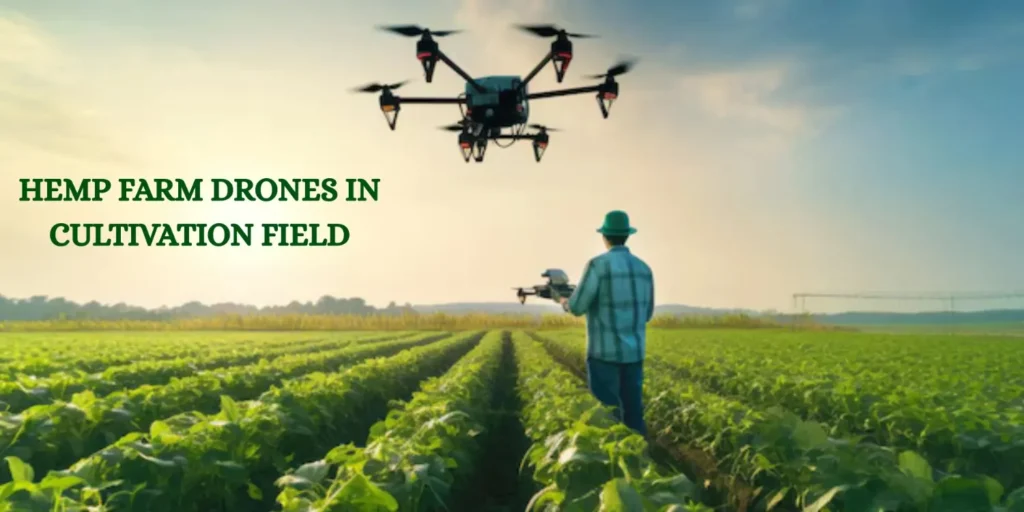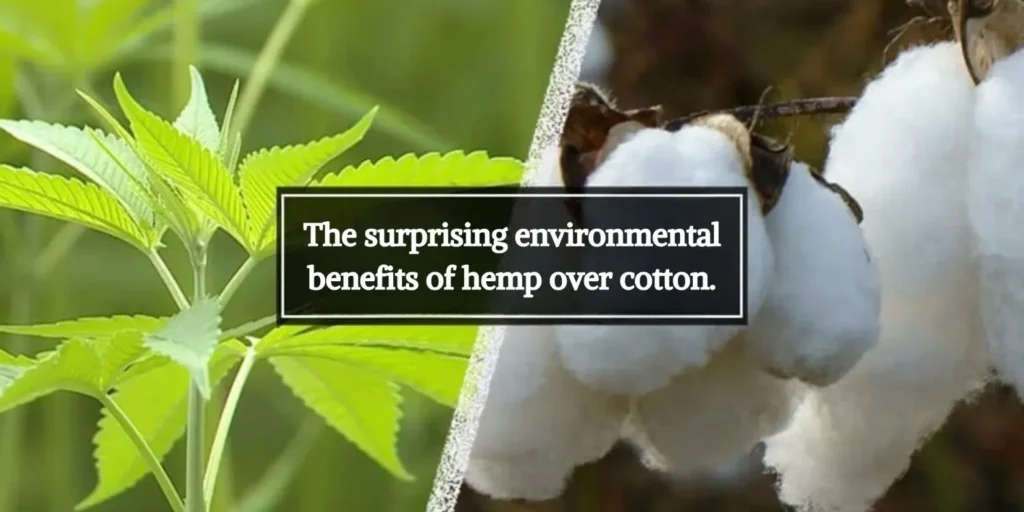Hemp has been a part of human civilization and cultivation from time immemorial. Hemp has emerged as an iconic plant throughout the world. After the farm bill of 2018 removed hemp from the legal circle of legally circumscribed substances and only comes under the legal boundary if it has having low THC content of the cannabis plant for agricultural practices.
This has initiated a hemp vs Cotton revolution around the world after testing its huge significance and its wondrous applicability in human life. This has led to a revamp of the hemp industry; today’s consumerist society has become more environmentally conscious, and they are more vigilant about the final goods and industrial processes.
Hemp’s predominant status has allowed it to gain a key role in the textile industry, and its influence is enhancing the prospects.
Various research tends to show that by 2025, the global hemp industry will reach up to $10.6 billion. Hemp is a versatile crop that has numerous benefits over cotton, and it’s ultimately a better choice than cotton.
Unequivocally, hemp Vs cotton is seen as a leading crop for many centuries in the textile world, with global cotton producing industries an average of 20 million tons of cotton every year. Hemp and cotton are incredibly beneficial for making clothing, linen, and other products; they predominantly override the textile industry. Since long cotton has been the best choice for clothing, and other textiles but hemp is genuinely a better and top choice if compared with cotton.
Hemp is comprehensively better, having more universal properties than cotton. If you ask if we can replace hemp with cotton? Then yes, hemp is a biodegradable element for a list of products, including cotton, building materials, and fuel. In a small amount of space, more amount of hemp can be grown. One acre of hemp can produce 1500 pounds of usable fiber, which is around 3 times the amount of cotton grown on the same land.
Hemp grows faster as compared to cotton; hemp plants require fewer nutrients than cotton and penetrate deep into the soil, which prevents soil erosion. These plants improve the quality of soil and prevent soil fragmentation; hemp protects from deforestation.
Hemp requires less land and water to grow, which naturally barrier against various pests, including fungi, bacteria, whereas cotton is responsible for 10% agricultural chemicals and 25 % of pesticides around the globe. Hemp is much environmentally friendly and helps in balancing the ecosystem in comparison to cotton.
Various forms of chemicals are used for cotton cultivation, which arouse various ethical concerns, but hemp, on the other hand, is environmentally friendly.
Hemp can be grown indoors as compared with cotton. Hemp is more durable and has high resistance to stretching, and is able to retain its shape for a longer period. It helps to block UV rays and is more expensive than cotton.
You Can Also Read this: CBD vs CBG: Which hemp compound is winning the race?
HEMP FARM DRONES IN CULTIVATION FIELD

Then demand for hemp is ever-increasing its fueling the competition between different crop growers and among the marijuana growers. More farms are trying to accommodate the ever-growing demand for CBD products.
Maintenance of a hemp farm requires more advanced and digitally viable technology, which includes drones. Hemp farm drones use multiple technologies to introduce a precise agricultural system to their hemp fields. Therefore, instead of articulating the farm activities manually, the farmers are incorporating drone AI to estimate their size and functionalities.
They are used for quantitative analysis. Hemp farm drones can be used to protect the crop by identifying weeds and monitoring diseases. Rather than using soil sampling measures, scanning for plant stress is more identifiable and reliable. Crop imagery is useful to monitor crop health.
PRECISION AGRICULTURE IN HEMP Vs COTTON CULTIVATION
Precision hemp cultivation– Precision agriculture, also called satellite farming, is a farming concept that is based upon observation, monitoring, and supervision. It makes the process of cultivation more accurate and controlled. The main aim of hemp farming is to enhance efficiency in order to obtain more yield with the available resources.
Precision agriculture is associated with the concept of GPS navigation, which highlights hemp crop development and soil requirements in order to achieve better productivity.
The satellite and robotic drones take real, accurate pictures of individual plants, which can be carried out using special software and integrated with sensors.
Precision cotton cultivation-In this globalised era of environmental concern, there is more inclination towards sustainable development. The cotton industry is constantly striving for more sustainable practices.
Precision agriculture in cotton is an innovative, modernized technology to optimize farming practices. It has emerged as a prime objective for a more sustainable cotton production. As its primary sense, integrating precision farming like supervision, scanning, and monitoring enhances the crop’s viability and enables a response to the agricultural situation, which permits the farmers to adopt more scrutinizing methods.
This becomes a bedrock of informed decision making by estimating the insights the farmer can use to make more informed decisions in utilizing fertilizers or pesticides at different rates in different sections of the field. This will optimize the valuable resources and allocation, minimize the waste, and remove environmental footprints.
CROP MONITORING IN HEMP vs COTTON IRRIGATION FIELD
Cotton is an essential cash crop; its monitoring is an essential part of agricultural practices. And to maintain sustainability in the farming system. CNNS (Convolution Neural Networks) its one of the deep explanatory models, which are used in analyzing the resolution pictures of the cotton field.
These models are used on both the damaged and healthy cotton plants. Here, precision agriculture practices are facilitated, assessments are made quickly and accurately, which helps to deduce crop loss and optimize resource distribution.
A revolutionary innovation is aiding farmers to grow hemp more efficiently in, innovative manner and revamping sustainable agriculture.
The researchers at the Florida Institute of Food and Agriculture have revolutionized and developed a novel method to monitor hemp crops.
Using drones equipped with visible cameras & supported with AI, the usefulness of drones, their capture high-resolution images of crops before the time of harvest, which measures the plant health with infrared reflectance.
The final stage incorporates AI technology, which processes the reflectance images to map plant growth and nitrogen response more precisely with demonstrate the potentialities and combination of drones and AI-driven sustainable farming decisions.
SMART FARMING IN AGRICULTURAL PRACTICES
Smart farming is also known by the name of smart cultivation, which integrates the utilization of advanced and latest technologies to optimize agricultural productivity like that as software for detection, sensors, and robotics, to improve the quality of the crop produced at the right quantity ratio.
Through modern techniques such as GPS, soil scanning. Smart farming enables monitoring of crops and supervision of the yields. To ensure better sustainability in agricultural functionality.
With the inclusion of smart farming, the agricultural industry is going through revolutionary changes. The cultivators can optimize the yield produced, initiate sustainable farming.
Smart farming is pivotal in modernized farming methods. Smart farming is the answer to your query, such as vertical farming, which minimizes environmental footprints. Smart farming ensures food security to meet the food challenges of the ever-growing population.
Overview
Hemp and cotton are both versatile crops and having innumerable benefits, but, hemp is somewhat having an upper hand in being a versatile crop having multiple benefits and being a sustainable crop hemp don’t need any specific climatic condition to grow, where as compared to cotton, hemp can be grown inside at favorable condition also, which is more durable than cotton and blocks UV rays protection.
When hemp Vs cotton, hemp exhibits distinctive qualities that produce excellent results when compared with cotton or any other cash crops. Drones are particularly seen as a great mechanism to supervise and channelize the monitoring mechanism.
Hemp farmers use drones to initiate precise farming in their fields. In an overall view, hemp is a viable crop distinguished from other cash crops; they are unique blend of ayurveda and scientific properties. Every single part of the hemp plant is monitored through precise farming. They are of necessity having great use and cultivation without disrupting their growing process, it’s having high usability.
Agricultural businesses tend to improve with the inclusion of smart farming.

